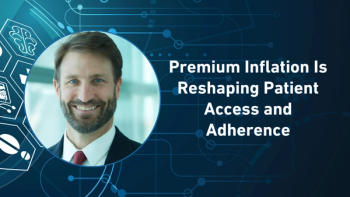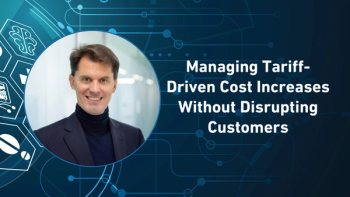
Shaping the Future of Commercialization
In the final part of his video interview with Pharma Commerce Editor Nicholas Saraceno, Chase Feiger, MD, co-founder, Ostro, outlines the trends he expects to see over the next 10-15 years when it comes to the intersection of AI and life sciences.
In a video interview with Pharma Commerce, Chase Feiger, MD, co-founder of Ostro emphasizes the value of AI technology in addressing challenges in digital commercialization within the life sciences industry. The main gap being addressed is the lack of personalized, intuitive, and engaging user experiences for healthcare professionals (HCPs) and patients, especially on digital platforms like brand websites. Feiger compares traditional digital experiences in life sciences to consumer-driven platforms like Netflix, where content is personalized based on past behavior and preferences. In the life sciences sector, however, regulatory constraints—such as the need for compliance with medical, legal, and promotional review processes—complicate this kind of personalization. Despite these challenges, AI and other consumer technology solutions can be adapted for this sector, prioritizing regulatory compliance while enhancing the user experience.
The solution, Ostro, was developed with this mindset: to create a digital experience for life sciences that balances personalization with strict regulatory standards. Feiger’s team includes experts from consumer tech, privacy law, and compliance fields to ensure that the platform is both effective and compliant. Ostro aims to transform the way HCPs and patients interact with medical content.
Feiger also shares the up-and-coming trends that he anticipates in relation AI and life sciences, and how the industry can position itself to capitalize on these trends.
A transcript of Feiger’s conversation with PC can be found below.
PC: What emerging trends do you foresee in the intersection of AI and life sciences, and how can we as an industry position ourselves to capitalize on these trends over the next 10-15 years?
Feiger: First and foremost, I think that every single brand experience 10-15 years from now is going to be vastly different in that there will be no one-size-fits-all brand.com or brand experience—it's going to be one that's really driven by personalized engagement, i.e., one that's going to understand where I am from a health literacy perspective, where I am from an HCP specialty perspective. It's one that's going to be entirely focused on things like personalization. If we look more holistically in the industry, we've seen the introduction of new technologies being able to support things like digital twins and virtual clinical trials, i.e., being able to create virtual control group solutions—with companies like Flatiron Health. I still think that there is a tremendous amount of innovation to occur, specifically on that side of the sector as well, when it comes to clinical trial research and how clinical trials are run.
I also think we're still in the very early stages for things like AI for market access and value communication, i.e., being able to leverage market access strategies to and conjoining that with a lot of what's happening in artificial intelligence. You'll be able to forecast things like payer trends, being able to optimize formulary positioning for new therapies. I think there that we're in the very nascent stages of that as well. But really where I'm going to go, and everything I'm going to hit on is all going to come back down to largely the commercial side, this idea for patient and HCP as AI to drive true personalization.
If you think about it, that is the thing that we keep hearing across the board. We've been hearing about personalized medicine for a very long time. We continue to hear about personalized medicine, but we're not actually practicing personalized medicine right now. We're practicing evidence-based medicine, which is good because we have the evidence, we have the real-world data to support the clinical decisions that we're making as providers. Imagine an era where we're doing genomic sequencing, we're looking at things like proteomics. Imagine what we're going to be able to do on the personalized level, and having all of that data from a personalization perspective to be able to support very important clinical decisions that we make. I think we are in the very early stages of that, and it'll be very interesting to see what comes in the future. A lot of that is going to tie to commercialization methodologies in some very exciting ways.
Newsletter
Stay ahead in the life sciences industry with Pharmaceutical Commerce, the latest news, trends, and strategies in drug distribution, commercialization, and market access.




